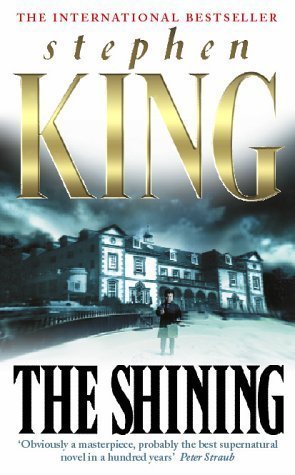
100 words: King
Stephen King said The Shining allowed him to live up to his potential as a writer: making the difficult choice to make the abused Jack Vance love his father, even as he hated everything about him. It lives up to that promise, but it cheats, and still shows some of the baggage that (I believe) hangs over his work, the reason I stopped reading him: He writes in three drafts, and sometimes the work sometimes wanders. Digressions which don’t move the plot forward. Sex dropped in at random. Inconsistent language – sometimes spare, sometimes flowery. A reliance on his own tropes.
100 words: the plot
Six year old Danny Vance has ‘the shine’: he sees and knows things. Things beyond this world. The past. Possible futures. He can read minds, particularly very emotional ones. And those of his parents. Danny’s parents are having ‘difficulties’, and Danny knows about them. Jack, Danny’s father, is a recovering alcoholic with a temper. His last chance at a job and a future is to take care of the Overlook Hotel, a hotel with a deep, disturbing history. Layers upon layers of anger and violent deaths await Danny, the most powerful shiner anyone’s ever seen. Only he can free them.
100 words: film versus the book
The Shining is one of the most iconic films in history. The book paints a portrait of Jack, Danny, and XXX’s relationship. Their hopes, fears and motivations, many of which remain unclear in the film. The book also builds an overwhelming sense of dread… most of the time. The film starts with all the fear, wonder, and imagination of the story, and pulls the laces tight, making the story sing. It lt shows, rather, than tells, the narrative inside Jack’s and Danny’s heads. King didn’t like it – for many good reasons – but for me, the edge goes to the film.
100 words: overall
I haven’t read The Shining since the early/mid 80s – during my requisite Stephen King phase. Around the time when It and Pet Sematary were new – I devoured a range of his early works. The Shining is a seminal, if flawed work, but it’s let down by the aforementioned baggage. The man has a phenomenal imagination, and is one of our greatest living storytellers, but he could be one for the ages. I find myself wishing for an editor that he trusts. Someone that can show him where to hit his manuscript with a hatchet. He’s already good with the scalpel.
This review is part of the Hodderscape Review Project